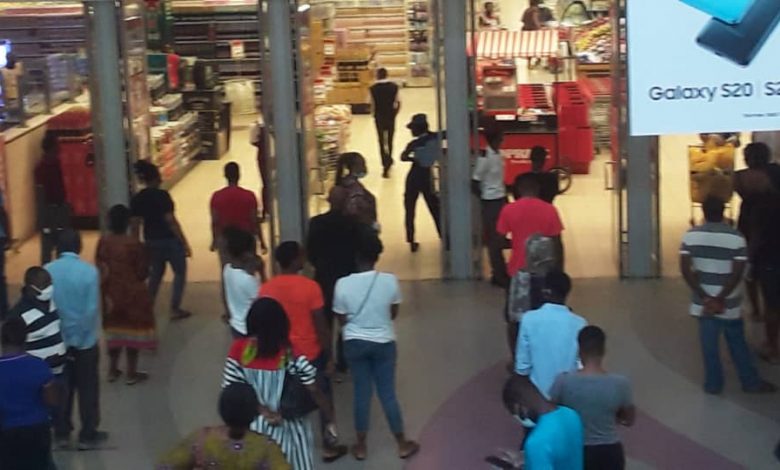COVID-19: Hunger Threatens Survival Amidst Lockdown

On March 29th, President Muhammadu Buhari gave only 24 hours notice about the lockdown in Abuja and Lagos. In less than a day, Nigerians in these cities rushed to markets to stock their homes before the grace period expired.
Not everyone was that lucky. In fact, not everyone had the means to be that lucky. With the lockdown already three days in effect, pangs of hunger have began to torture the homes of the unlucky poor.
Although the government had announced palliative measures and subsequently revealed that 5,000 homes have received 20, 000 Naira each, there has been no record of persons who have had access to these funds.
Richard Odegbami, a driver who has been left unemployed since he moved from Ibadan, has not received any bank credit yet. He also did not have the luxury of stocking up his house with food before the lockdown. He has no money to do so.
“It’s crazy.” He says. “I had no plan for this. I will have to manage.”
Although those who could afford to buy in bulk were frustrated with the short notice, they felt relieved that they could respond to the crisis after paying a harrowing visit to the bank.
With COVID-19 breathing down the necks of countries, movement restrictions are understandable, but it is agreed that the vulnerable populations are at greater risk of weathering such a precarious time.
Odegbami cites that not having enough time to prepare was a major factor throwing him into a further state of insecurity.
Nigerians also took to twitter to express their feelings around the government not giving them adequate time to prepare.
Happy Umana asked, “So what does a total lockdown mean for the average Nigerian with no money to stock up on food, water, or even power supply to preserve food?”
So what does a total lockdown mean for the average Nigerian with no money to stock up on food, water or even power supply to preserve the food? Some employers haven't even paid their employees and have implemented "no work, no pay". Dear Nigerians, how are you doing?
— Happy Umana (PhD) (@happyumana) March 30, 2020
Those like Odegbami without the financial resources to prepare are doing their best. He is now relying on his cousin to send him money from Cross River State to feed.
For Mercy Oruche, a hairdresser now working from home due to COVID-19, staying inside is almost impossible. She told HumAngle that people like her need to move to be able to eat.
She said, “People will feed. The government can’t expect people to not eat or try to make money. There will be someone out on the street selling something to someone.”
With the lockdown in effect, securing basic necessities is like survival of the fittest, and it is the most vulnerable who are left without a safety net.
Like others, Odegbami fled to the outskirts of Abuja to live with a friend in order to cut impending costs.
If supporting the vulnerable is truly the government’s priority, then an effective plan to make sure those in need receive support should be put in place immediately.
The COVID-19 outbreak has further unveiled the disproportionate reality between the haves and the have nots. In Buhari’s address concerning the lockdown, he urged Nigerians to comply with the guidelines and make a collective sacrifice. How collective? Some people will have enough money to handle the cost of food, petrol and any oncoming calamity.
If most Nigerians had a level playing field, such a sacrifice could be honored. To ask this of people already facing grave insecurity, without properly planned support, is unfair.
Support Our Journalism
There are millions of ordinary people affected by conflict in Africa whose stories are missing in the mainstream media. HumAngle is determined to tell those challenging and under-reported stories, hoping that the people impacted by these conflicts will find the safety and security they deserve.
To ensure that we continue to provide public service coverage, we have a small favour to ask you. We want you to be part of our journalistic endeavour by contributing a token to us.
Your donation will further promote a robust, free, and independent media.
Donate HereStay Closer To The Stories That Matter




